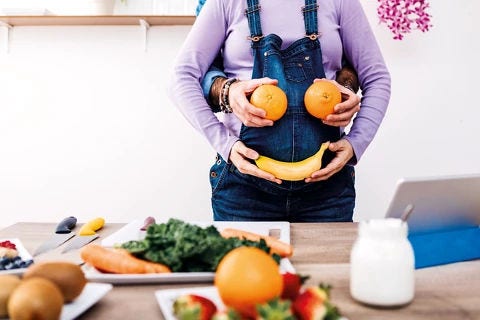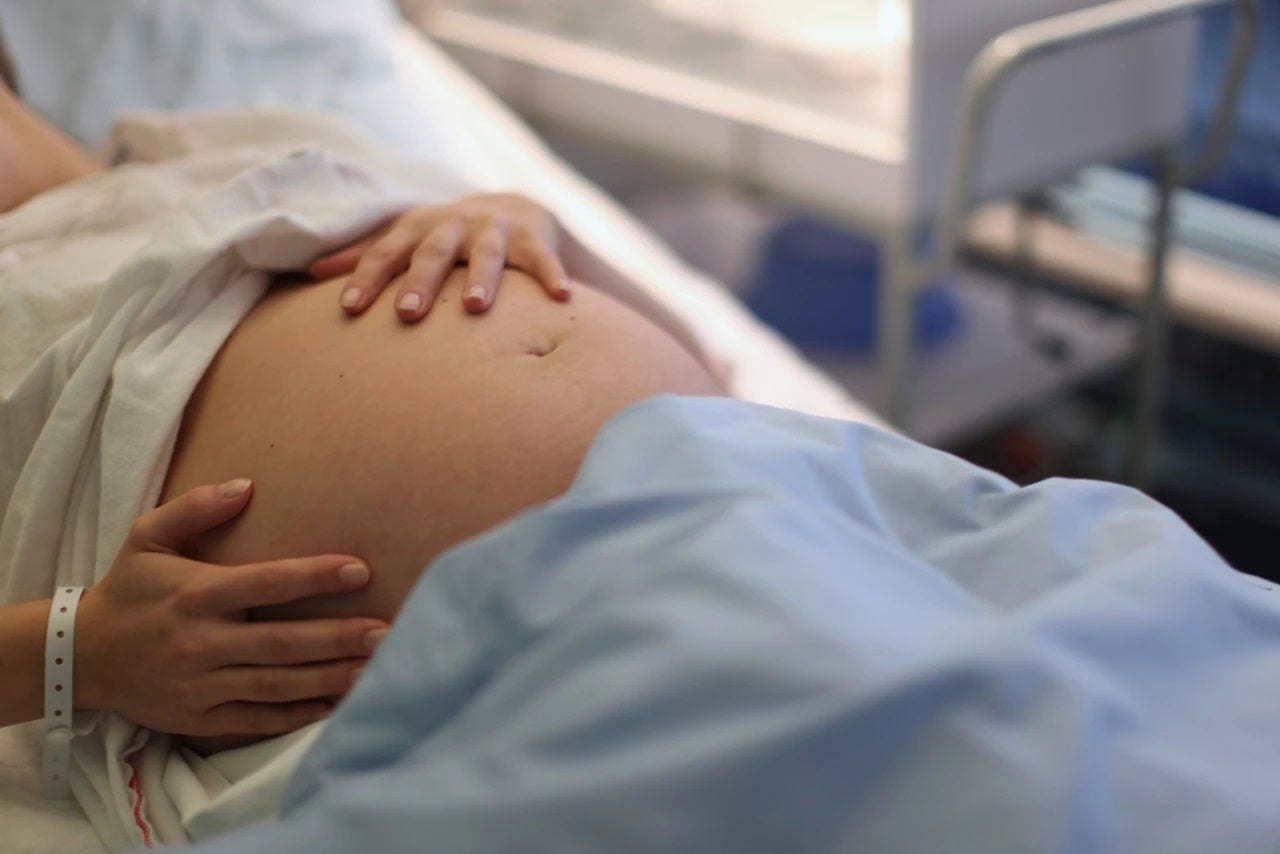If you’ve been experiencing an uncontrollable desire for certain foods and drinks, you’re not alone. From pickled gherkin sandwiches to garlic mushrooms with custard...welcome to the world of pregnancy cravings! This article will explore pregnancy cravings and food aversions in more detail.
What's in this article
Weird & wonderful pregnancy cravings
What causes pregnancy cravings?
It still isn’t clear what causes cravings, but research suggests that taste changes and hormones are the driving forces.
Interesting research by a team of scientists in Lisbon found that female fruit flies craved saltier foods after mating, resulting in more eggs being produced1. This research suggests that cravings might be a way of our brain understanding what the body needs, however more research is needed to prove this theory.
When do pregnancy cravings start?
Every woman is different, and your experience of pregnancy may not be the same as other pregnant women. It’s difficult to pinpoint when pregnancy food cravings start, and you might not even experience pregnancy cravings at all.
If you do start having cravings, it's mostly likely to be in your first trimester (1-3 months). Some women report experiencing cravings as early as five weeks into pregnancy. Cravings tend to get stronger during your second trimester (months 3-6) and usually disappear by the beginning of your third trimester (six months onwards)2.

Is there a link between pregnancy cravings and baby gender?
You might have heard that pregnancy cravings can offer a glimpse at your baby’s gender. For example, old wives’ tales suggest that craving salt in pregnancy suggests that you’re carrying a boy whereas sugar cravings in pregnancy suggest that you’re carrying a girl. Unfortunately, these are nothing more than myths and are not supported by scientific evidence.
What are common pregnancy cravings?
Hormonal changes, nausea and sharp dips in blood sugar levels can leave you reaching for the biscuit tin and craving comfort foods, especially during the first trimester2. A small survey of 200 women found that common pregnancy cravings included3.
- Sweets and chocolate
- Savoury carbohydrates (e.g. pizza, cereal, crackers)
- Animal protein (e.g. steak, chicken)
- Fruit
- Cheese
- Fast food
Do you share any of these - what’s on your ‘must eat’ list? Share with us on Instagram @CGbabyclub
Craving non-food items during pregnancy: ‘Pica’
It’s worth noting that the majority of food cravings will not cause you or your baby any harm. However, a very small number of women may find themselves wanting to eat typically inedible substances including soil, chalk and clay. This condition is referred to as ‘Pica’ and it can be a sign that you may have a nutrient deficiency such as iron deficiency anaemia. If you have any abnormal pregnancy cravings, it’s important to talk to your midwife or doctor as it can be treated with medication or supplements.
What are food aversions during pregnancy?
You might have noticed that your favourite food suddenly leaves you heaving at the thought. Or maybe you can’t bear the smell of strong-smelling dishes? Food aversions can have the opposite effect of food cravings; you may find yourself avoiding certain foods or drinks.
Human chorionic gonadotropin (hCG) (the hormone responsible for your positive pregnancy test) rapidly rises during the first trimester and peaks at around 10 weeks into pregnancy. This increase in hCG during the initial weeks of pregnancy has been linked with unpleasant symptoms including nausea, which is known to be the biggest cause of food aversions in pregnancy4,5.
Common food aversions include alcohol and caffeine, both of which should be limited during pregnancy anyway to protect the health of your baby6. Some women also experience food aversions to fatty, greasy or strong-smelling foods. On the whole, most food cravings and aversions will not cause any harm to you or your baby. However, if you notice that your diet has become limited because you are avoiding lots of foods, you could miss out on important nutrients from your diet. If you are worried about your diet, you can contact a dietitian or your midwife for support.
To share your stories of weird and wonderful cravings or to look for some friendly advice on what to eat when pregnant, talk to us on Instagram @cowandgateireland
- Walker SJ et al. Postmating Circuitry Modulates Salt Taste Processing to Increase Reproductive Output in Drosophila. Curr Biol 2015;25(20):2621-30.
- National Health Service Start4Life. Pregnancy FAQs [Online]. Available at: https://www.nhs.uk/start4life/pregnancy/pregnancy-faqs/ [Accessed: December 2020].
- Orloff NC, Hormes JM. Pickles and ice cream! Food cravings in pregnancy: hypotheses, preliminary evidence, and directions for future research. Front Psychol 2014;5:1076.
- Forbes LE et al. Dietary change during pregnancy and women’s reasons for change. Nutrients 2018;10(8):1032.
- Cole LA, Butler SA. Human Chorionic Gonadotropin (hCG). 1st ed. Elsevier, 2010.
- National Health Service. Foods to avoid in pregnancy [Online]. Last reviewed 2020. Available at: https://www.nhs.uk/conditions/pregnancy-and-baby/foods-to-avoid-pregnant/ [Accessed: December 2020].
More from pregnancy
Pregnancy topics
Any more questions?
Our specialist baby advisors and experienced mums are here to talk and ready to help whenever you need them.
Ask us a question (8am - 8pm Mon-Fri, 10am - 5pm Weekends)
Email us
Send us an email (8am-8pm Mon-Fri, 10am-5pm Sat)
Call Us
Call us on 1800 570 570 (8am-8pm Mon-Fri, 10-5pm Sat)
FAQs
For all the latest information












